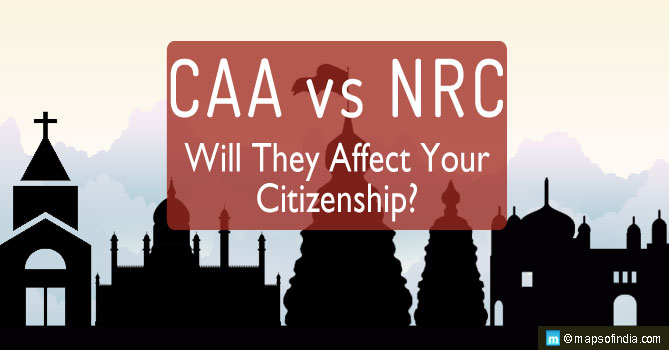India has always maintained cordial and commendable bilateral relations with its neighbor Afghanistan. In fact, during the 1980s when the Soviet Union had set up the Democratic Republic of Afghanistan, India was the only country in South Asia to have supported the same. However, relations between both the countries took a beating during the 1990s when the Islamic Republic of Afghanistan was besieged with the Afghan Civil War and was being governed by the Taliban. India played a major role in throwing over the Taliban; it also became the biggest provider of aid and humanitarian assistance to the country that was almost in tatters, and played a major part in getting Afghanistan back on its feet.
What does Pakistan think?
In recent times many Indians have been working in a number of construction projects going on to help Afghanistan rebuild itself. Pakistan has, however, stated that the RAW, the intelligence agency of India, has been working undercover in that country in order to assist and train insurgents and also mar Pakistan’s name in the process. These claims have faced strong rejection from India as well as the US, which used to be a major ally of Pakistan.
The retired Lieutenant General Abdul Qayoom had stated that India has dozens of consulates in India that are located in the vicinity of the border shared by Afghanistan with Pakistan. However, actually India has just 4 consulates in Afghanistan, which are located in Herat, Kandahar, Mazar-i-Sharif and Jalalabad. Pakistan has also accused India of conducting acts of terrorism in Pakistan from Afghanistan.
2008 Embassy Bombing in Kabul
After the Indian embassy in Kabul was bombed in 2008, Afghanistan had expressed solidarity with India, saying that they were like brothers and the relationship they shared could not be harmed by any power. The relations between both the countries received a significant boost during 2011 when they signed a strategic partnership agreement. This was also the first such agreement Afghanistan had signed since the Soviets invaded the country in 1979.
What do the Afghans think?
Gallup, a well known research-oriented performance management consultancy organization based in Nebraska US, conducted a poll among Afghans, where it was revealed that India’s leadership was preferable to that of China and the US. 50% of the people included in the survey expressed their approval for India. This was the best rating India had received among all the surveys that had been done in the Asia-Pacific countries.
Indo-Afghan Relations Back in Time
The relations between people in India and Afghanistan date back to the Indus Valley Civilization. After Alexander the Great had occupied the region for a brief period, the area was under the control of the Seleucid Empire that succeeded him. In 305 BCE, majority of the area was handed over to the Mauryans in accordance to a treaty of alliance. The Mauryans had introduced Buddhism over there and also administered the region that lay to the south of Hindu Kush.
The Greco-Bactrians won the region back after the Maurya Empire declined. However, a major part of this region broke free from the Greco-Bactrians and was included in the Indo-Greek kingdom that was defeated and driven out by Indo-Scythians during the later part of 2nd century BCE. Before Islam came during the 7th century, the then Afghanistan was under the influence of Buddhism, Zoroastrianism and Hinduism. In spite of Islam gaining popularity in Afghanistan the Muslims co-existed with Hindus.
From the 10th century to the mid-18th century, a number of Turkic rulers invaded northern India and most of them were based in Afghanistan. The most prominent examples in this case were the Ghaznavids, Suris, Ghurids, Durranis and Khiljis. A lot of Mughals also migrated to India during the Mughal period as there were a lot of political problems in that area.
Indian Independence Movement
During the movement for India’s independence, Khan Sahib and Khan Abdul Ghaffar Khan, who was also known as the Frontier Gandhi, played a prominent role and supported the Indian National Congress actively. The NWFP was included in Pakistan when India was partitioned in 1947. Since the Pashtun community had supported India during that phase, India too supported Abdul Ghaffar Khan when he was campaigning for greater freedom for the Pashtun people.
Soviet Age and the Taliban
India was the only country in South Asia that supported the Democratic Republic of Afghanistan and also provided humanitarian assistance in Afghanistan. When the Soviet army withdrew from Afghanistan in 1989, India kept on supporting the Najibullah regime and with the global community, also supported the coalition government that governed the country after his fall.
However, things took a turn for the worse when the Taliban took control of Afghanistan after a civil war. The Taliban administration became a security problem for India, thanks to the increasing presence of Afghan Mujahideen in the militant incidents in Jammu and Kashmir. The Bamiyan Buddha monuments were destroyed in Afghanistan at this time and this saw some significant protest from India. During 1999 an Indian Airlines Flight 814 was hijacked and kept in Kandahar. It was suspected that the hijacking was masterminded by the Taliban.
India was one of the major supporters of the Northern Alliance that sought to rid the country of the Talibans and provided critical intelligence and allied support for that purpose.




